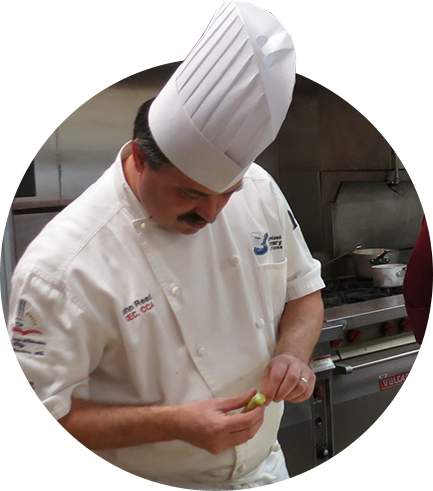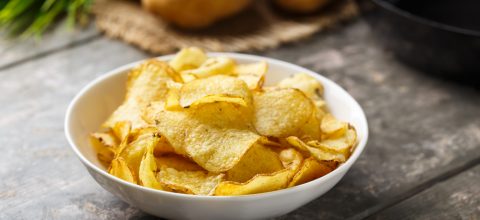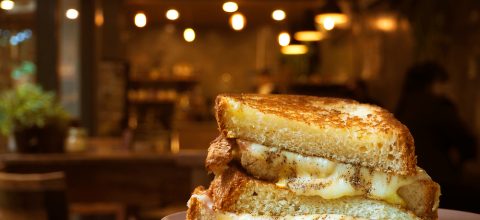The ability to properly serve food cold or at an ambient temperature has been a challenge for many years. We all know that there is nothing like a warm meal when you apply heat to specific items especially proteins, fats and spices amazing things happen. Flavors come alive, fats become supple and coat mouth with satisfying aromas released into the air. The action of flame to food the brings us together at the table over a hot meal.
This is an easy task for the menu planner. Lots of hot options that are traditionally served from buffets allowing guests an interactive experience to choose to how much or how little they wish to enjoy of any particular item. With current conditions there is huge shift to individual meals either delivered hot when ordered and consumed within a relatively short time after assembly. It also defines or restricts portion sizes which are different for different consumers.
However, there are many situations where customers are in need of providing meals to their employees in factories, supply centers or construction sites where the service of hot meals is impractical or cannot be executed in manner that maintains the fundamentals of time and temperature control and food safety. There are also situations where these meals will be store for some time due to split shifts and physical distancing protocols.
Here is the challenge, designing a delivered cold food menu that provides appropriate calories, is flavorful, and is enjoyable to eat at an ambient temperature or with a few minutes of being removed from refrigeration. The nature of certain proteins and fats makes some particular preparations not suitable such as saturated animal fats, fried items, braised or stewed items which are thickened with some kind of starch. Sandwiches are the de-facto option when designed well with firm bread and wet items such as dressings and vegetables served separately as not to make it a wet mess. Hence the challenge as customers get tired of sandwiches.
What are the most affective types cold ambient offerings?
These ambient menu items should be designed around three assemblies or packing concepts where staff, workers and volunteers can safely receive or collect the offerings while adhering to physical distancing guidelines.
Complete all-included that allows for precise and focused non-contact delivery and drop off within the facility verses a crowded collection process
Mix and Match One Center of Plate Item with Separate Packages Sides
Build Your Own Boxes allowing more individual customization that can be consumed over long periods
Cooking Considerations
- Use cured meats or roasted meats that are thinly sliced
- Avoid the use of butter, extra virgin olive oil that will solidify at cold temperatures
- Braised meats should be pulled or chopped finely and combine with naturally reduced sauces in combination emulsified items such as mayonnaise, commercial dressings or sour cream
- Used oven dried, roasted vegetables with reduced water content to increase flavor
- Add condiments with elevated heat levels such as hot sauces, chilis, black pepper to brighten flavors.
- Acidic flavors from pickled items such as chutneys that help both in flavor and shelf life
- Keep the size of starchy and hard items such as potatoes and stuffed pastas smaller than ¾” for mouthfeel and eating with disposable utensil
- Adjust seasonings after chilling as flavors are diminished when cold
- Avoid the use of overly aromatic and astringent raw items such as garlic and onions.
- Build items around dietary concerns such as gluten free and nut free to avoid having to modify items and specialized labeling
Menu Construction
The following are general components of an individual cold meal menu program:
Hand-Held Items
- Traditional, Regional and Global Influenced Sandwiches
- Open Faced Sandwich Presentations
- Flatbreads and Bread Based Pizzas
- Individual Savory Pastries
Knife and Fork Presentations
- Classic Green Salads with un-dressed toppings and sides
- Starch Based Salad with Complimentary Proteins
- Modern Terrines
- Topped Salad Bowls or layered salads
Build Your Own or Adult Snack Trays
Healthy Snacks
Dessert Boxes
Continental Breakfast Bags
We have created a sample menu of these concepts. There are always options through tasting collaboration and ingenuity, all the skills for which caterers and restaurants are known for










